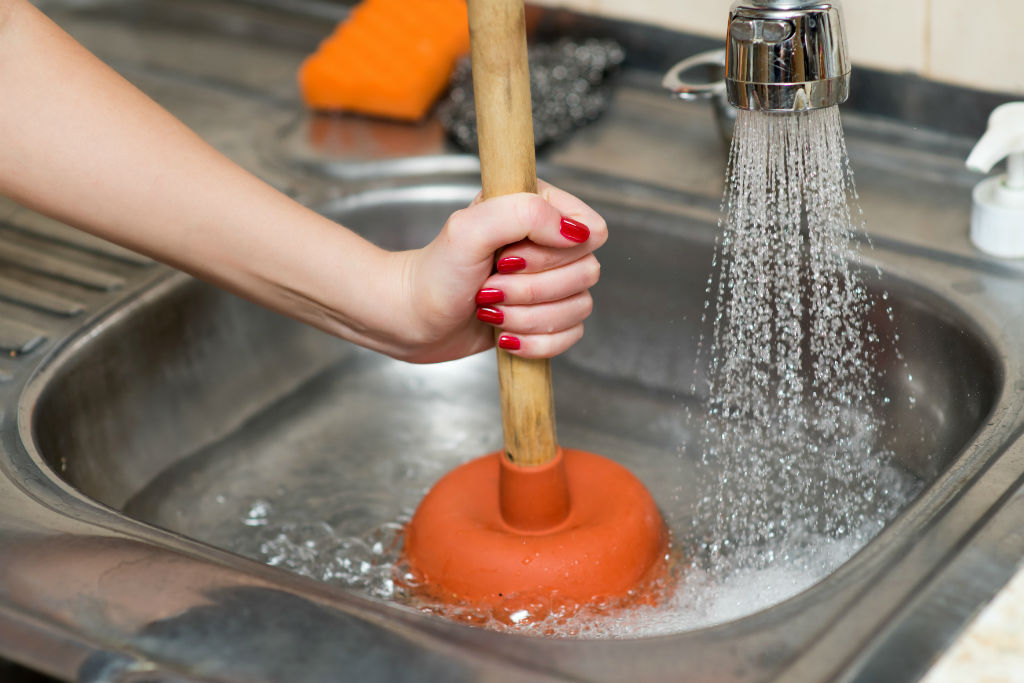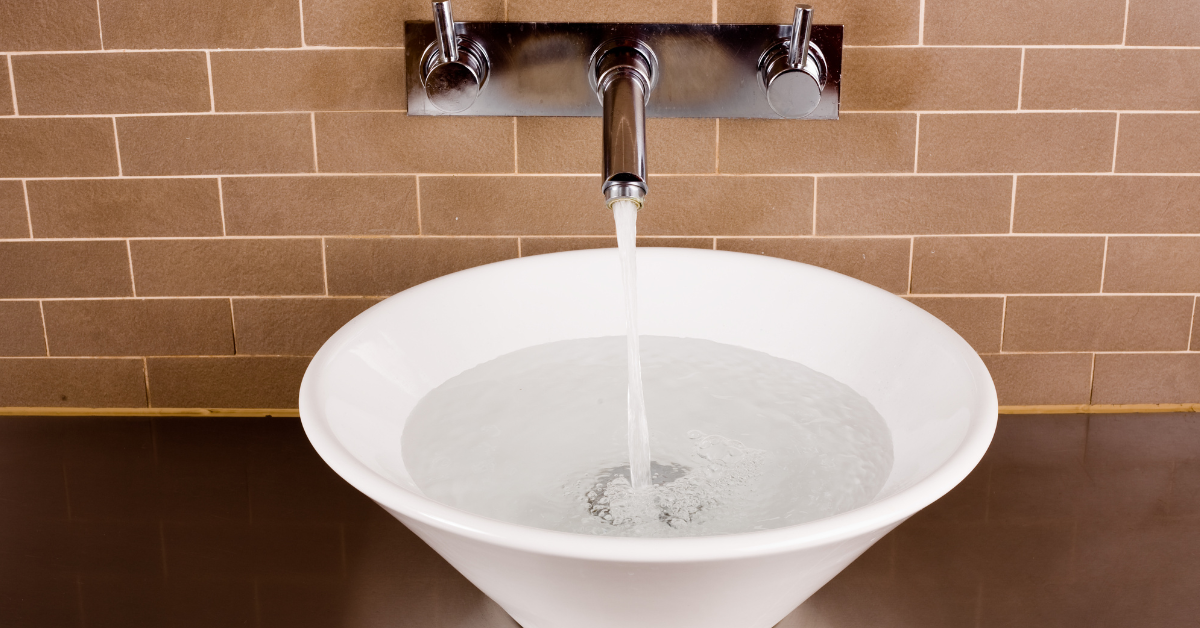Ways To Repair A Slow-Draining Sink
Ways To Repair A Slow-Draining Sink
Blog Article
What're your thoughts concerning 7 Ways To Fix A Slow-Draining Sink Before You Call A Plumber?

Introduction
We have actually all existed: You're cleaning your teeth or cleaning your hands, and you notice the water merging in the sink. Instead of rapidly swirling down the tubes, it sticks around, turning your once-refreshing early morning routine into a miniature overload scene. A slow-draining sink isn't simply irritating; it's commonly an indication of bigger pipes problems lurking under the surface area. The good news is that the majority of slow-draining sinks can be fixed with a little expertise, a few standard tools, and some persistence. Ready to tackle this project head-on? Allow's roll up our sleeves and dive right in.
Understanding the Sources Of a Slow-Draining Sink
Before you start poking around in your pipelines, it assists to understand what may be creating the slowdown. Recognizing the root cause makes it much easier to select the best fix.
Common Wrongdoers Behind Slow Water Drainage
So, what's obstructing points up? Normally, it's a blend of day-to-day particles-- believe hair, soap scum, toothpaste residue, and leftover food fragments. With time, these little bits collect and cling to the pipeline walls, gradually narrowing the flow and making it harder for water to go through. In some cases, natural resource from tough water can likewise add to the crud, developing the best storm for stubborn obstructions.
When is it Time to Take Action?
If you see the water draining pipes slower than usual, it's a good idea to intervene faster rather than later. Waiting also long might bring about complete obstructions, undesirable odors, or perhaps pipe damage. If the water takes greater than a couple of secs to clear out after turning off the tap, consider it a warning and prepare to put on your do it yourself hat.
Tools and Materials You'll Require
The right tools make all the distinction. Fortunately, you won't require a fully equipped plumber's van to finish the job.
Crucial Tools for DIY Fixes
A bettor is your go-to beginning factor. A small, sink-sized plunger develops suction that can displace small clogs. For more consistent obstructions, a drainpipe serpent (occasionally called a plumbing's auger) works wonders. A pair of handwear covers, a flashlight, and possibly a set of safety safety glasses are additionally convenient.
Advised Cleansing Solutions
Moderate meal soap and hot water can help break down greasy accumulation. A mixture of baking soft drink and vinegar is a tried and true natural remedy, and chemical cleaners supply a more environment-friendly strategy. Maintain chemical drain cleansers as a last hope, as they can be harsh on your pipes.
Safety And Security First: Precautions and Preparations
Prior to you launch into unclogging setting, think about security. You're managing potentially dirty water and particles, so slip on a pair of gloves. If you're utilizing chemical cleaners, make sure the space is well-ventilated and adhere to the guidelines on the tag.
Safety Gear and Workspace Setup
Lay down some old towels or dustcloths around the sink area to catch sprinkles. Clear away any type of things that may get in your way, like soap dispensers or toothbrush owners. Make certain you have great lighting-- order a flashlight if required.
Step-by-Step Overview to Fixing a Slow-Draining Sink
Now, let's enter into the nitty-gritty. This detailed procedure will certainly assist you through simple techniques to restore your sink's water drainage.
Action 1: Get Rid Of and Tidy the Stopper
Often, the stopper (that small plug you lower to block water) is the first culprit. Remove it carefully and wipe any kind of hair or crud trapped around its base. Rinse it extensively before putting it back in position.
Action 2: Utilize a Bettor to Dislodge Debris
Got that bettor prepared? Placement it over the drain and offer it a couple of company pumps. The concept is to develop suction that can loosen any blockage. If you see bits of debris drifting up, you're on the best track.
Step 3: Attempt a Drainpipe Snake or Cord Hanger
If the plunger does not work, it's time to bring out the drainpipe snake. Gently feed it into the drain and spin as you go. You may feel some resistance-- that's likely the obstruction. Keep turning and pulling till you eliminate the obstruction. If you do not have a drain serpent, a straightened cable wall mount can work in a pinch.
Tip 4: Apply a DIY Drainpipe Cleanser
A natural cleaner made from cooking soda and vinegar can break down recurring grime. Put half a cup of cooking soft drink into the drainpipe, followed by half a mug of vinegar. Allow it fizz for around 15 minutes, then flush with hot water. This chemical reaction commonly does wonders for small obstructions.
Tip 5: Reassemble and Examine the Sink
Put every little thing back together and run the faucet. Does the water now swirl away at a respectable speed? If yes, give yourself a pat on the back. If not, do not misery-- there are still a few more tricks up your sleeve.
Different Approaches for Stubborn Clogs
Not all obstructions are produced equal. If your sink still declines to work together, think about these different solutions.
Sodium Bicarbonate and Vinegar Technique
We currently discussed this, however it's worth noting once more. This mild, environment-friendly method is more secure than chemical cleaners and frequently fairly effective.
Chemical Drain Cleaners
Enzyme-based cleansers use natural microorganisms to absorb organic matter. They're a superb choice if you're wanting to stay clear of severe chemicals. Just bear in mind, they might take a bit longer to function their magic.
Chemical Drainpipe Cleaning Company: Pros and Cons
Chemical cleansers can blast with difficult blockages fast, but they're not without drawbacks. They can produce warm and fumes, damage pipes if used exceedingly, and present ecological dangers. Use them sparingly, and constantly adhere to the instructions meticulously.
Preventive Measures to Keep Your Sink Flowing
Avoidance is the best treatment. By embracing a few basic behaviors, you can keep your sink from decreasing in the first place.
Regular Cleaning Routines
Clean down the sink basin and component location consistently. Eliminate hair or food particles prior to they have a chance to wash down the drain.
Staying Clear Of Damaging Substances Down the Drain
Hesitate prior to dumping coffee grounds, oil, or coarse vegetable scraps down the sink. These culprits hold on to pipeline wall surfaces, producing obstructions in time.
Routine Upkeep Checks
Set up a fast monthly assessment. Run hot water through the sink for a few minutes, focusing on the circulation. If it appears slow, act quick before it ends up being a full-blown blockage.
When to Call an Expert Plumbing Professional
Often, despite exactly how difficult you try, that block simply won't budge. That's when it's time to bring in the pros.
Signs That Show an Extra Serious Concern
If your sink drains pipes slowly in spite of multiple efforts, or if you observe water backing up in various other fixtures (like your shower or commode), you may have an extra major pipes problem prowling much deeper in the system.
Stabilizing Do It Yourself Efforts with Professional Help
While DIY can conserve you money and use a feeling of achievement, there's no embarassment in calling a professional. A specialist plumbing technician can analyze your entire plumbing configuration, making sure there's no underlying damages or long-term problem that can cost you much more later on.
Contrasting Costs and Long-Term Solutions
Before deciding, take into consideration the big picture. A low-cost, quick fix may fix the trouble momentarily, yet buying an extra irreversible remedy can conserve you cash and anxiety in the future.
Considering the Expenses of Do It Yourself vs. Specialist Solutions
DIY fixes frequently cost little bit greater than the cost of a plunger or a container of cooking soft drink. Professional services, on the other hand, included a cost yet might protect against repetitive issues and pricey repairs later on.
Purchasing Quality Fixtures and Upgrades
If your sink's style contributes to constant clogs, it may be worth updating to higher-quality fixtures or changing the pipes format. Consider this a financial investment in your home's functionality and comfort.
Verdict
A slow-draining sink can feel like a small irritability, however it's typically an indication that your pipes needs a little TLC. By understanding the root causes, using the right devices and strategies, and dedicating to simple preventive measures, you can maintain your sink streaming freely. And when all else falls short, never ever wait to hire a professional-- your home's plumbing is worth the investment in treatment and upkeep.
Three Common Ways to Fix a Slow Drain
Baking Soda Method
Boil a full pot of water. Measure out cup of baking soda and pour it down the drain. Then take cup of the magical cleansing substance known as white vinegar and drop that down there too. Allow the mixture to fizz in the drain for five minutes as the vinegar and baking soda combine. Now dump in that whole pot of boiling water. This combination of cleaning substances should clear out anything that is causing your sink to drain slowly. If it doesn t...
Zip-It
If the baking soda method doesn t clear out your drain, it may be because a significant amount of hair and/or other debris has collected there and you need to remove it. Purchase a Zip-It tool at any home improvement or hardware store and insert it into your drain. It will catch any collected hair or debris that s blocking the flow of water. Pull it out. If it s got a big clump of hair, etc. on the end, you ve probably got your culprit.
Drain Cleaner
If these methods don t work, there is the standard drain cleaner that you can also buy in a hardware store or even your local grocery store. It s better if you can use a household solution, but these drain cleaners often work in a pinch. They re very simple to use. You generally just dump them in your drain and wait. If even this method is not effective, it may be time to call the plumber.
https://www.mrrooter.com/oneida/about-us/blog/2017/july/three-common-ways-to-fix-a-slow-drain/

I am just very focused on Solved! How to Fix a Slow Sink Drain and I hope you appreciated our blog post. Sharing is caring. You just don't know, you will be doing someone a favor. Thanks so much for going through it.
Visit Link Report this page